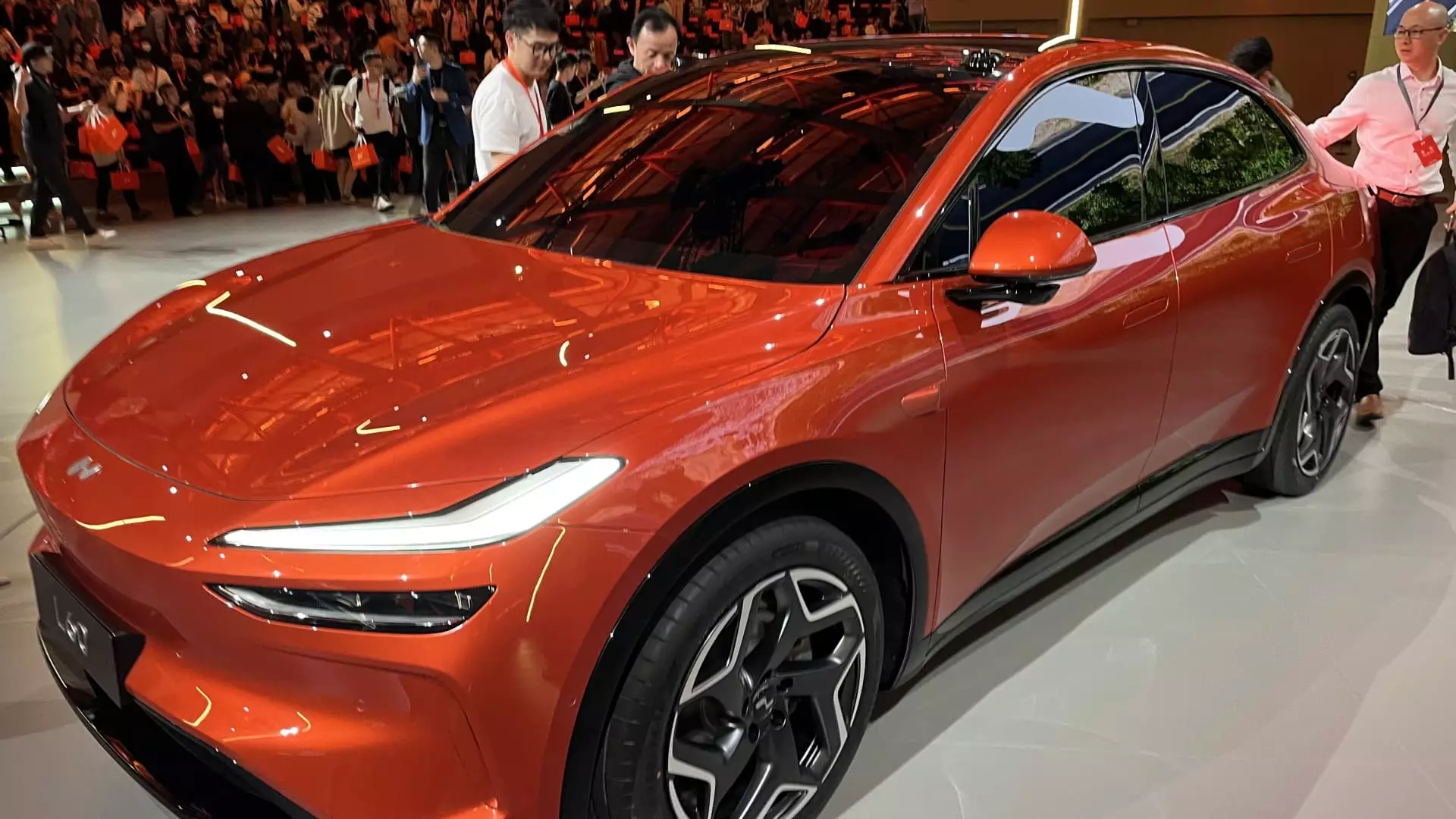In the rapidly evolving electric vehicle (EV) market, price competitiveness is crucial for survival. The latest entrant to challenge the dominance of Tesla is Onvo, a subsidiary of the well-known premium EV manufacturer Nio. The brand recently unveiled its inaugural model, the L60 SUV, which aims to capture market share by offering a lower-priced alternative. This strategic move underlines a growing trend among Chinese automakers to disrupt established players, particularly Tesla, whose market presence remains robust.
Affordable Pricing and Subscription Model
Launching at a base price of just 149,900 Chinese yuan (approximately $21,210), the Onvo L60 embodies a newly popular approach where consumers can opt for a battery subscription service. Instead of purchasing the battery outright, users can subscribe to a monthly plan starting at 599 yuan (around $85). This innovative approach alleviates financial strain on buyers while offering a nominal fee compared to the total cost of ownership. The full package, which includes the vehicle and battery, starts at 206,900 yuan. By positioning itself against Tesla’s Model Y, priced at 249,900 yuan, Onvo aims to attract buyers who are price-sensitive but still seek modern electric functionalities.
Onvo’s aggressive pricing strategy contrasts sharply with rival brands such as Geely’s Zeekr and Xpeng, adding pressures to Tesla’s pricing strategy in China. Zeekr plans to launch its midsize SUV, the Zeekr 7X, at 239,900 yuan, while Xpeng’s new brand, Mona, is offering its M03 electric coupe starting at a significantly lower price of 119,800 yuan. The escalating competition is essential to consider, as it reflects the broader market shift towards affordable electric vehicles, making it a catalyst for innovation in features, technology, and customer engagement strategies.
The European Challenge and Tariff Concerns
As Onvo and other manufacturers expand their footprint beyond China, they face new challenges, particularly in the European market. The European Union (EU) is intensifying its scrutiny of Chinese electric vehicle exports, with impending tariffs on vehicles complicating matters for manufacturers such as Nio. Despite these challenges, Nio’s CEO, William Li, expressed optimism about establishing a presence in the UAE and maintaining a foothold in select European markets. However, the rising tariff rates — 20.8% for Nio — indicate that the cost of entering Europe will likely rise, discouraging some manufacturers from pursuing aggressive export strategies.
Looking ahead, Onvo has set ambitious targets, aiming for 10,000 L60 deliveries monthly by the end of December and 20,000 in subsequent months. Such growth projections reveal Onvo’s confidence and its determination to seize a considerable portion of the EV market. The targeted 15% vehicle margin marks a strategically ambitious position that, if achieved, could greatly influence Nio’s overall profitability. Furthermore, with plans to establish over 200 stores in China by year’s end, Onvo is clearly implementing a robust retail strategy.
The introduction of not only Onvo but also various other budget-friendly EV brands signifies a transformative phase in the automotive landscape. With consumer preferences shifting towards less expensive alternatives and a dependable brand narrative, companies are compelled to innovate in price, technology, and customer service. The electric vehicle market is set to experience ongoing upheaval, creating new dynamics that may well redefine traditional notions of premium and budget segments. As the EV sector continues to develop, consumer choice expands, fueling a competitive ecosystem where established players like Tesla must adapt to maintain their market edge.

